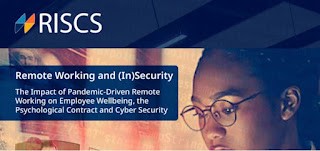The Power of Partnerships
Professor Keith Martin writes about how academic and
business collaboration is crucial to cyber security, and how the government is
tackling this with a number of new initiatives.
Much has been said about the need for academic, business and
government to work together to address the future cyber security challenges
that society faces. This is a sensible proposition since cyber security affects
everyone, and each sector brings different strengths and capabilities. Grand
words and aspirations are one thing, but making such partnerships work is
something else entirely.
Full credit must be paid to the UK Government for setting
the ball rolling with a number of constructive initiatives, most of which stem
from the UK National Cyber Security Strategy. For example, the Academic Centre
of Excellence in Research (ACE-CSR) scheme has made it simpler for external
partners to identify academic institutions with a critical mass of cyber
security research capability and experience. The National Cyber Security Centre
(NCSC) certified degree programme has provided welcome pointers towards quality
academic cyber security education programmes. Perhaps most directly addressing
collaboration, the NCSC’s CyberInvest initiative has sought to create
partnerships between external funders and academic research institutions in
order to promote cyber security research. All these have made positive
contributions and helped to foster a more cohesive cyber security environment.
Who doesn’t want more collaboration? Meeting new people is
fun. Discovering what other organisations are doing is interesting. Working
across sectors can be satisfying, and raises profile.
There are two barriers that fruitful partnerships need to
overcome. The first is the potential for mismatch of expectations. The
motivational drivers behind academia, business and government are not always
the same, so successful engagement requires the identification of common
ground. The second, arguably more significant, issue is that good relationships
need time to grow. And time is something we all seem to lack these days.
One of the initiatives that emerged from the first UK
National Cyber Security was the establishment of two Centres for Doctoral
Training (CDTs) in Cyber Security, one at Royal Holloway and the other at
Oxford. Since 2013, these centres have funded over 100 doctoral students to
undertake PhD research in cyber security. These programmes involve a first year
of immersive cyber security training, before students undertake three years of
research. The first graduates from these programmes are now emerging to take up
leadership roles across the cyber security profession.
The CDTs in Cyber Security have been extremely successful initiatives, not just because they are producing the intended cyber security leaders, but because they demonstrate a vehicle for constructive cross-sector collaboration. External organisations actively support the training programme (this year the Royal Holloway CDT made full-day visits to the NCSC, KPMG, HP Labs and Thales), host three-month internships (recent hosts included IBM, NATO and The Cabinet Office) and play an active role in governance (advisory panel representatives include Roke Manor, PwC and DCMS). Through these relationships students have, amongst other successes, worked with Mozilla to develop the new TLS1.3 standard, improved performance of CloudFare technology, and designed cyber war games that have been played in numerous boardrooms. Through these collaborations, CDT students have been making a real difference.
However, none of this has come easily, nor quickly. Good
partnerships require investments from all sides – financially, emotionally and
in terms of time. In cyber security we need more mechanisms, like the CDTs,
where true partnerships can be given both the freedom and the time to develop,
nurture and grow.


Comments
Post a Comment